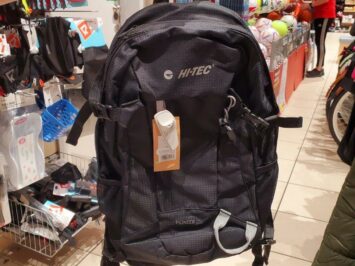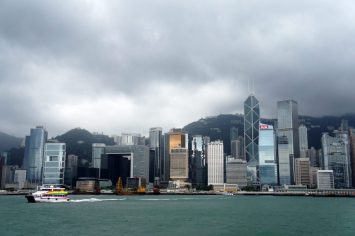One of the best parts of traveling in Asia is enjoying the variety and affordability of food they offer. When traveling in Asia, eating their delicacies is an essential part of the overall experience.
But unfortunately, eating foreign food in a foreign country can make or break your trip. Many travelers, especially Westerners who travel around Asia for the first time tend to get sick from the food they eat.
Not because you saw a local eating a particular dish, it means it is safe for you to eat. You are not as immune as them! Some food has bad organisms or chemicals which make you sick.
Although there’s no guaranteed way for you to avoid getting sick or having traveler’s diarrhea from the food you eat while you are in Asia, there are some evil foods you have to think twice before consuming.
We asked a fellow travel foodie, Alice of Fortravelista to share with us her list of 10 evil foods you definitely have to watch out for when visiting Asia!
Quick Navigation
Toggle1. Fish and Shellfish
No matter how proud a Japanese sushi chef is of the immaculate quality of his raw dish, fish and shellfish are the favourite home of bad microorganism and if they’re uncooked, they are easily able to cause stomach problems after consumption.
Cooking has to kill most of them off, and the fish that are used for making sushi and sashimi is pretty alright. But eating raw shellfish like mussels and oysters can be dangerous. So, unless you saw how they are caught and cooked, you may want to avoid these.
2. Fried Rice
It is almost impossible not to have this while traveling in Asia. Fried rice is normally cooked on a pan used for cooking meat, so the rice is cooked together with the meat scraps that remained on the pan. Due to this, you’re at risk the chance of having the rice contaminated by the meat — although your dish does not actually have pieces of meat! So, if you are really craving for some Asian fried rice, it is better to make sure that they cook the rice on a separate pan that is specifically for the rice.
3. Raw Eggs
Another delicious dish that we crave for when in Asia, specifically Japan, is ramen. But you have to know that eating raw or partially cooked eggs that normally put in this delicious dish should be watched out for. Raw eggs are a great source of salmonella. Okay, this is not for all types of ramen, but there are restaurants that serve their customers with raw eggs in a very hot bowl of heaven and let them cook in it. The best thing you can do is to request for a hardboiled egg. Another popular dish in Asia which has raw eggs on it is Sizzling Sisig in the Philippines where they put the pork and an uncooked egg on top of a sizzling hot iron platter to let the egg cooked while waiting for the platter to get cold.
4. Undercooked Meat
Many countries in Asia, especially in the Southeast are popular for their street foods, and at every food street that sells street food, it’s almost impossible not to see meat on skewers. These are possibly the best quick snacks when traveling in Asia especially for backpackers, but what you have to make sure of is that if they really are well-cooked, Yeah, I also believe that meat that is a little but undercooked is tastier, but this could cause a big danger. Raw meat carries two coats of possible contamination. The external surface is essentially a gateway for enteric pathogens, which are easily killed by heat. There are also the parasitic pathogens in the muscle tissue, that’s why it’s always recommended for you to cook them very well before eating them.
5. Salad or Raw Vegetables
You’re going to travel but on a diet? Well, I’m sorry to tell you but eating green in Asia could make your health bad. Eating raw vegetable when traveling to a foreign land (Yes, not only in Asia but anywhere) is not something any nutritionist would recommend. Why, you may ask… well because you can’t tell for sure the real condition of the vegetables and if the water used to clean it is good. It is also a fact that green-leafed vegetables can have harmful microorganisms that wouldn’t essentially wash off with simple fresh water.
6. Overly-Greasy Foods
For some reasons, it seems like greasy foods are some of the best foods you can eat while in Asia. From Hong Shao Rou of China to Tonkatsu of Japan and Char Kuay Teow of Singapore, resisting them is a big challenge. But the problem with this kind of food is that they can make your stomach sick. Greasy food can become acid throughout the process of digestion, which sequentially can lead to heartburn. Greasy food can also aggravate IBS symptoms like diarrhoea.
7. Sauces and Condiments
I know it feels incomplete to eat sticks of satay in the food street of Kuala Lumpur or cuttlefish skewer in Taipei without dipping them in special sauce, but the problem is, you have no freaking idea what’s in that sauce! It could be made with dubious water or with raw foods like raw eggs or vegetables which are not a really good thing. If resisting sauce is something you’re not really good at, make sure that it is properly cooked and is still hot.
8. Milk
For some reason, many foreign travelers don’t get ill when drinking lassi, an Indian cold yogurt-based drink. But usually, it is mixed with tap ice and water from the tap. So be careful! To make it worse, this drink contains milk. Because dairy farming preservation can sometimes fall below the level of standards most westerners are used to, it can be a risk to consume milk in Asia.
9. Tap Water
You most definitely know this by now. No matter how a local insists that their water is drinkable, you may still want to stick to the safe side and choose to drink only canned and bottled beverages. Make sure not to drink when brushing your teeth or having a shower. Line water in developing countries may be contaminated by parasites, bacteria, and viruses which can lead to different diseases such as cholera, hepatitis, and typhoid fever.
10. Drinks with Ice
For most travelers who like drinking, the most common cause of their sickness during the trip is drinking alcohol. Travellers normally do not come to the realisation that the ice they put in their drinks, may it be alcohol or juice, is the reason for their bathroom misery. So, when ordering alcohol, soda, or any kind of drinks, request to omit the addition of ice.
What if I become ill?
Sadly, when you get sick from your food choice, there’s nothing much you can do but live with it for a few days to weeks while waiting for your medication to work. Make sure to drink plenty of water (not tap water!) It’s important to keep your body fluid high when you’re sick.
Blockage tablets are not the solution to diarrhoea problem. Your body has to get rid of toxins on its own, so unless it’s really necessary, try to avoid taking tablets.
Keep in mind that it is important to report the incidence of stomach sickness or food poisoning to the place you suspected you got the food from. It’s also worth noting that the duration of recovery depends on from person to person, so make sure to check with a medical professional as soon as you can when you feel something weird in your body after eating a certain food. It’s also important for your travel insurance claim, which you should consider getting before the beginning of your trip.
Whether you are enjoying the benefits of traveling alone or you’re sharing your precious travel moments with other people, knowing how to take care of yourself by knowing what foods to avoid is an important part of traveling.
Have you ever suffered from any food poisonings when visiting Asia?

About Alice: A travel blogger, world adventurer, and life lover. Traveling the world at slow phase to immerse herself into what this wonderful world has to offer. Join her in her daily adventures at Fortravelista.com and learn tricks and tips for a cheaper, less hassle travel journey.


